Inside: Do you want your teen to find success in high school, college and beyond? Enroll them in music lessons! Music for teens will prepare them for the rigors of life and more. Science has discovered that involvement in music can be an important key to a teen’s success.
Music for Teens: Academic, Social & Emotional Preparation for College
Do you have a teen (ages 12- 18)? Do they play a musical instrument? Have you noticed that in comparison to their peers, they seem more disciplined, responsible and smarter? If so, give credit to the music!
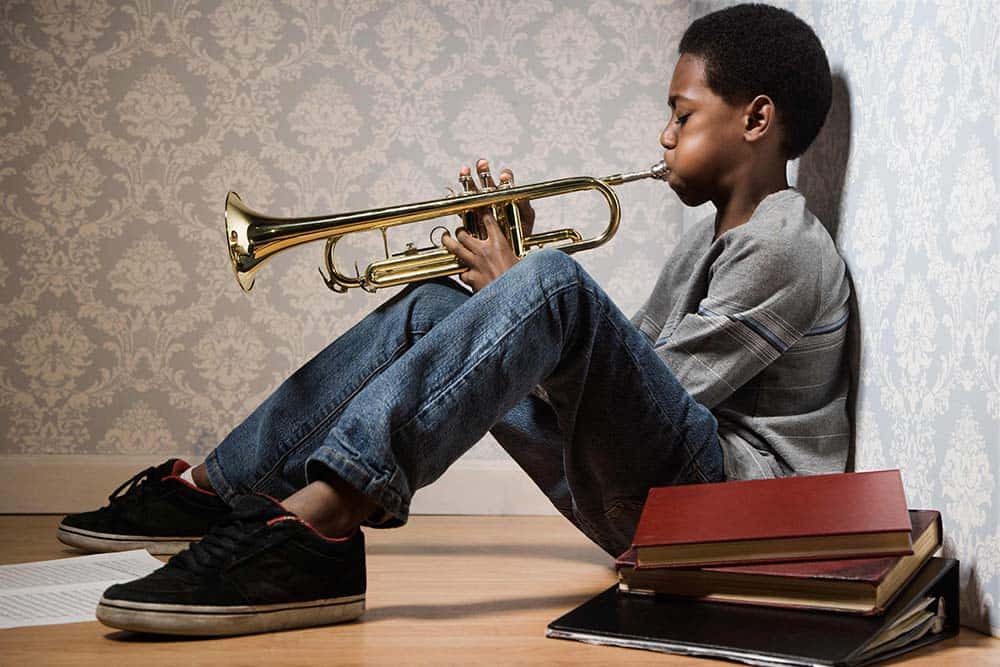
Teens who are involved in music are more disciplined, responsible and just plain smarter than their peers who are not involved in music.
Involvement with music for teens will prepare them academically, socially, and emotionally at a faster rate than kids who do not play a musical instrument—and science says so. Additionally, it will prepare them for the rigors of college like no other activity.
Academic Preparation for College: What Students Need to Know and Be Able to Do, is a handbook published by the College Board to help high school students prepare for college. It states, “Preparation in the arts will be valuable to college entrants whatever their intended field of study. The actual practice of the arts can engage the imagination, foster flexible ways of thinking, develop disciplined effort, and build self-confidence.”
Clearly, involvement in music is a powerful preparation for college, life, and learning.
Music for Teens: Continued Involvement is Important
By the time your teen enters junior and senior high school, competition for his/her time will become more intense. But, do NOT let them give up their music! Learning to play a musical instrument and being involved in music in school becomes an investment in their futures.
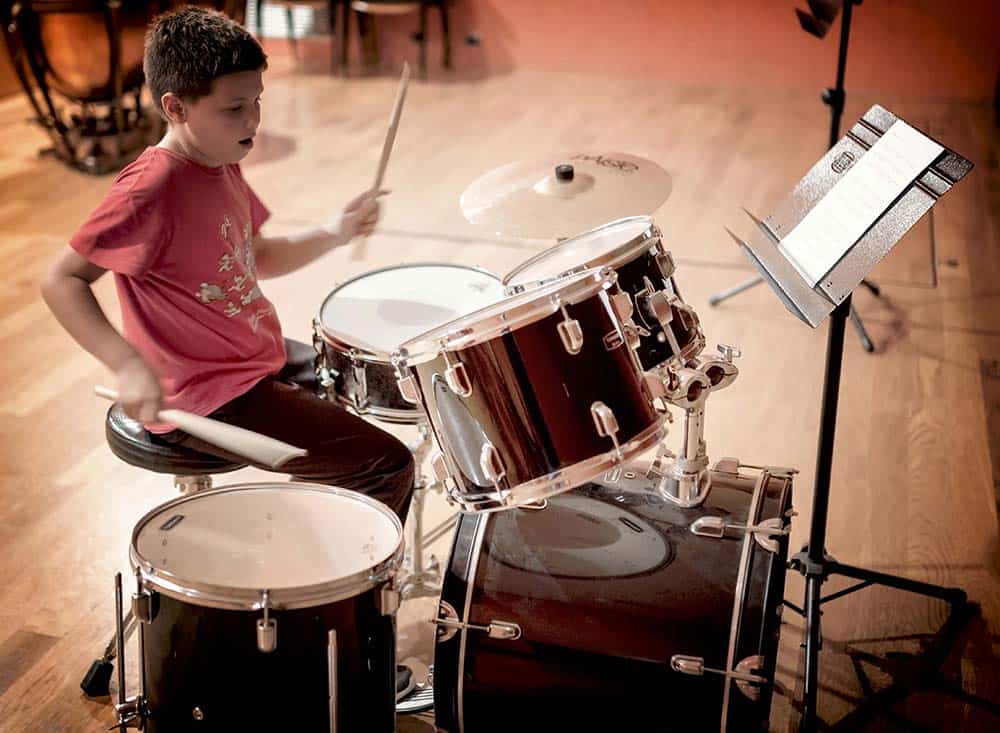
Do not let your child quit their music lessons once they get into high school. Music continues to build the brain in ways that help a child learn throughout their lives.
It’s easy to rationalize, “OK, Jenny has had a few years of piano lessons. It’s been good for her, but now life is going to get very busy with school, sports, and other activities. She won’t have time to practice and I’m not going to waste money on unprepared lessons. Besides, she’s not going to become a concert pianist. It’s time to quit.”
Wrong!
Young people don’t have to become concert pianists to gain the lasting benefits that come from the continuous study of a musical instrument.
Today, as well as in years past, parents understand the importance of their children furthering their education by going to college, a trade school or other higher forms of education. But the competition is getting more difficult. However, learning a musical instrument will help them successfully compete in any academic setting.
Music for Teens: Do Better in School and on Standardized Tests
It is a well-documented fact that students involved in music do better in school. They are more:
- responsible
- dependable
- self-discipline
- creative
- innovative
- learn quicker and easier
- retain information better
- memorize easier
- critical thinking skills more advanced
The reason? Music exercises the entire brain at once particularly the auditory, visual and motor areas of the brain thus developing learning, values, and higher-order thinking skills earlier and to a greater degree of sophistication.
Bottom line: kids who learn a musical instrument are just plain smarter and more disciplined!
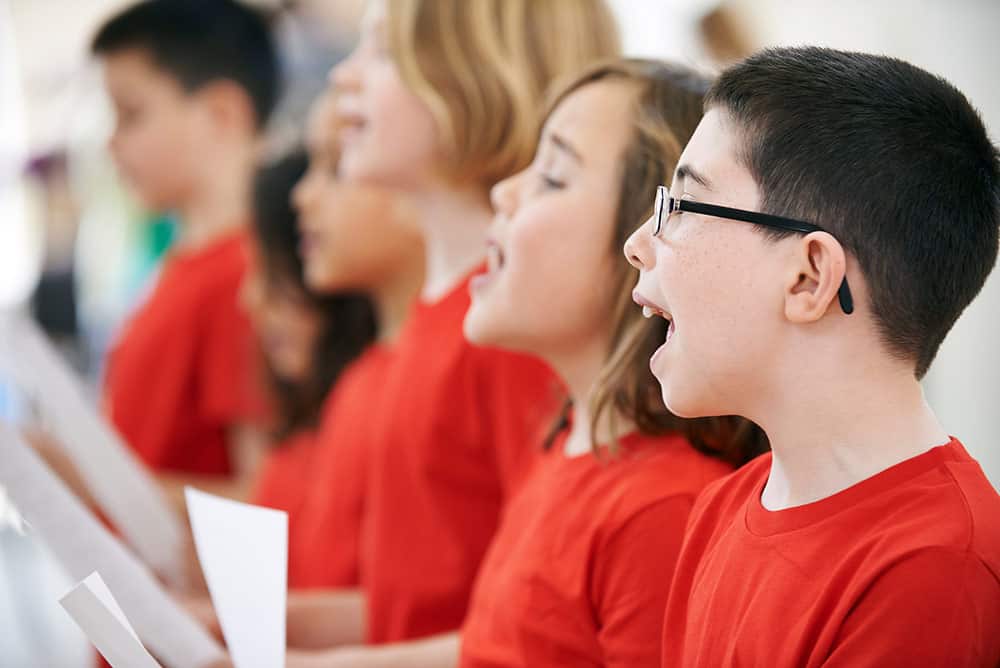
Studies show that teens involved in taking music lessons, or participation in the school choir, orchestra or band do better on standardized tests, in school, and with their peers.
Music Involvement: Higher SAT and Other Test Scores
The College Entrance Examination Board has found that students involved in music and the arts continue to outperform their non-arts peers on their SATs (Scholastic Achievement Tests). The accumulation of data is ongoing, but from 2006-2010, students enrolled in fine arts courses scored between 11 and 13 percent higher on the SAT.
In Texas, a 5-year study revealed that Texas All-State musicians scored 22 percent higher than the national average and 25 percent higher than the Texas average on the SAT.
In terms of standardized tests, students in high-quality school music programs (particularly top-quality instrumental programs) have higher math and English scores in comparison to students in schools with deficient music programs. And this is regardless of the socioeconomic level of the school or school district.
School Music Programs = Better Attendance & Higher Graduation Rates
Last, schools that have music programs also have significantly higher student attendance rates and higher graduation rates than those schools without music programs. The rate: 90.2 percent as compared to 72.9 percent. And they have lower dropout rates.
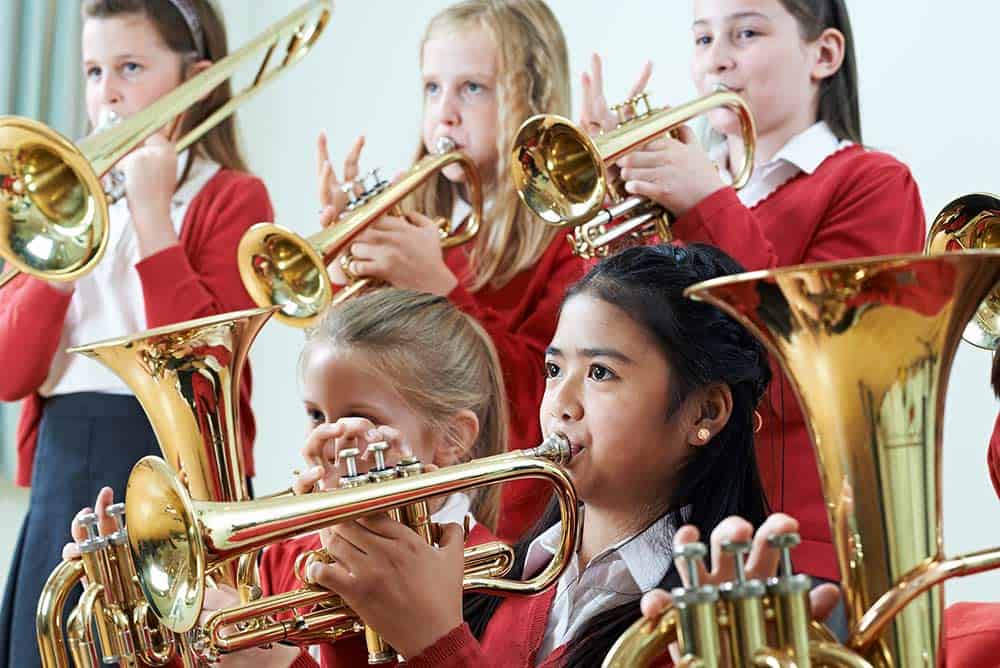
Schools that have music programs have students who have better attendance, higher graduation rates, and lower dropout rates
These reasons should be sufficient motivation for parents to keep their children actively involved in music throughout their junior and senior years of school. Academically, they will be more advanced and more prepared to tackle college.
Many music researchers agree—all children are born with an innate musical nature and with nurturing it can blossom, giving them enjoyment and satisfaction their entire lives.
Here are some ideas and suggestions for engaging your child in music during the teen years.
Music for Teens: 6 Music Experiences that Will Make a Difference (ages 12-18)
#1: THE POWER OF EXAMPLE
Encourage older siblings to be an example to younger siblings in regard to practicing their instruments and sticking with their music.
After seeing the movie, Shine, my son (who was 16 at the time) became very enthusiastic about his music. He practiced more and wanted to play more difficult pieces. His enthusiasm was electrifying to his younger brothers. They followed his example and began practicing more. Pretty soon, they were fighting over practicing time on the piano. Example is powerful!
#2: ATTEND MUSIC CONCERTS
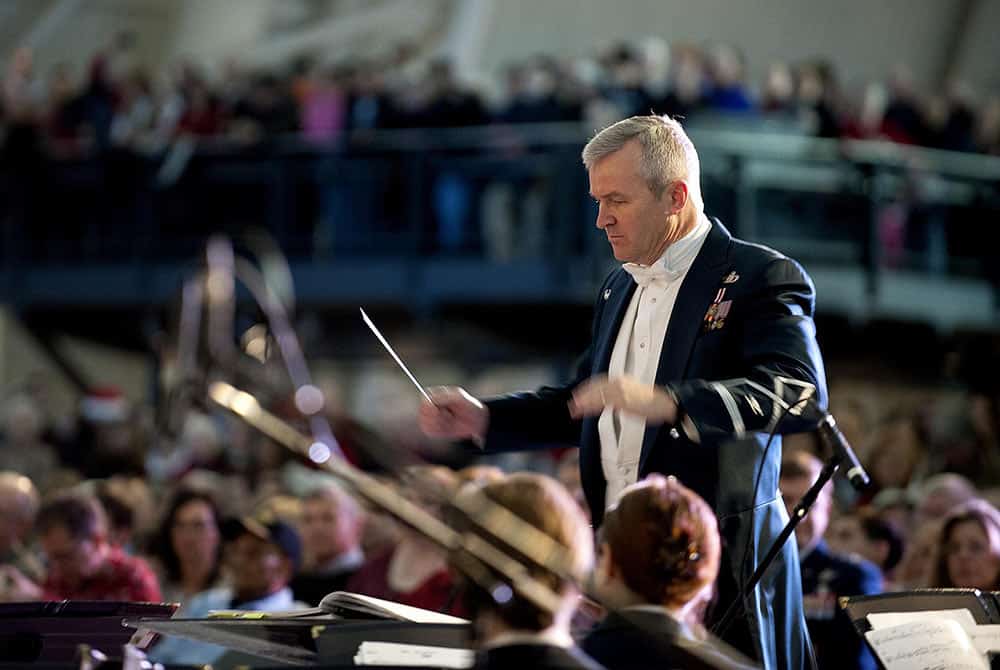
One way to expose your teens to music is to take them to music concerts–the symphony, musicals, opera, ballet, and more
Take your teen to more sophisticated concerts, symphonies, musicals, operas, ballets, etc. Check the events in your local community and in nearby colleges and universities for a variety of concerts available.
Prior to going, prepare your teen by talking about the storyline and by playing the music. It will increase their enjoyment of the performance. And if possible, ask if backstage tours are available.
#3: MEET THE COMPOSER
If possible, arrange for your teen to meet a composer—a person who writes music. Network with other parents, check out the Internet and see if there is a composer in your community. Many would welcome the opportunity to share their knowledge and expertise with your children and teens and encourage other budding musicians.
#4: GIVE GIFTS OF MUSIC
For holidays, birthdays and other special occasions, give musical gifts such as:
- subscriptions to concerts
- tickets to a play, a musical, a symphony, a ballet, etc.
#5: FAMILY MUSIC RECITALS
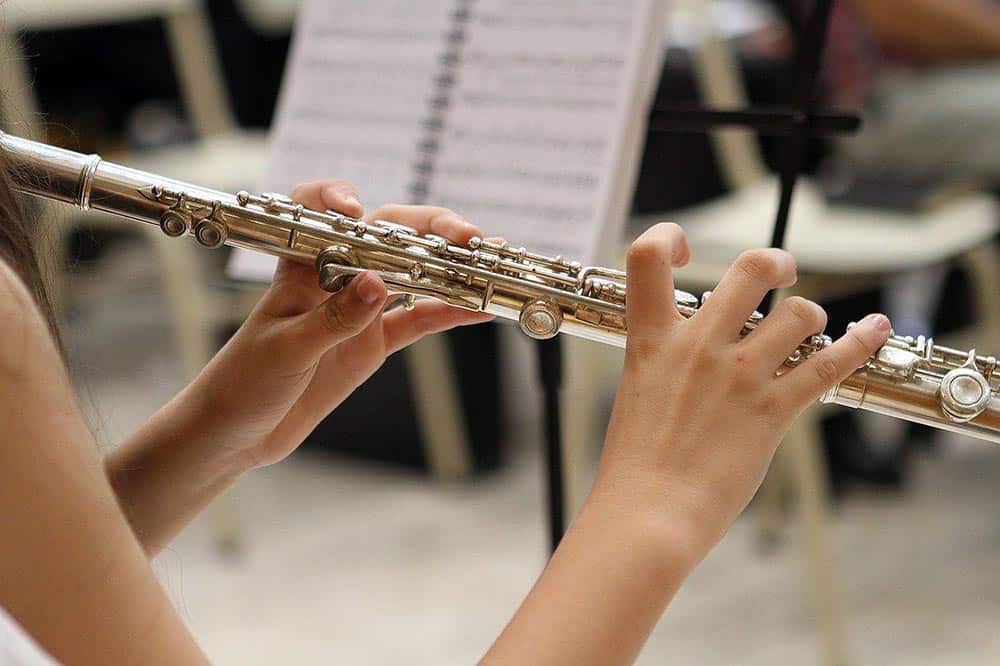
If your teen plays a musical instrument–does their music teacher have regular recitals? These are important as they motivate a child to finish learning pieces of music and they teach them about performance in front of a group.
Are your kids learning a musical instrument? Do their music teachers have regular recitals to give them an opportunity to perform in front of an audience? If not, create your own family music recital (and even if your children’s music teachers plan recitals—these family recitals are extra fun!).
Invite family members, extended family and even the neighborhood kids to these informal recitals. Some kids get motivated to work harder learning an instrument when they can perform regularly for others. Plus, recitals are a great motivator for a teen to polish a piece of music.
#6: COMPOSER HALL OF FAME
Start a “Hall of Fame” in your home using pictures of famous classical and other famous composers. Set aside time each month to talk about the greatness and strength of these men and women and their dedication to the arts.
Listen to their music and discuss interesting facts about their lives. This family time together has several benefits: it adds to your teen’s knowledge bank; motivates them to practice harder and is quality time spent with mom and dad. And, make your children and teens part of your Hall of Fame–talk about their contributions to music in your family.
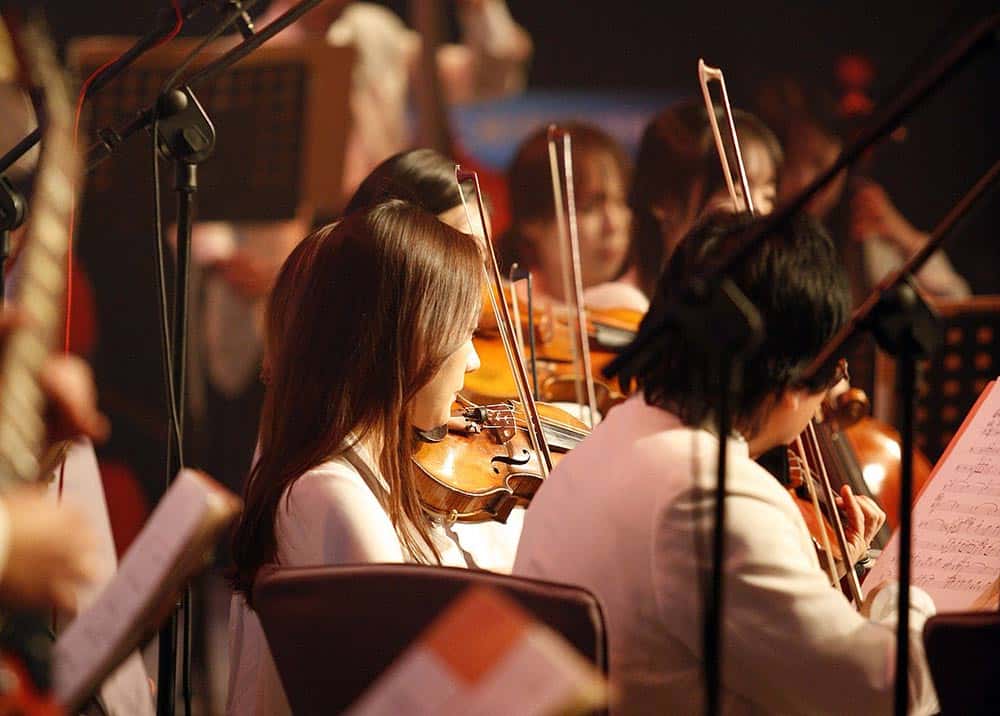
Start a “Hall of Fame” in your family. Include great music composers. Talk about their lives and contributions.
Author Thomas Carlyle said in his book, Heroes and Hero-Worship, “Great men taken up in any way are profitable company, for we cannot so much as look upon a great man without gaining something from him.”
These are just some ideas—add more of your own as you turn your home into a musical training center. No matter the ages of your children, start now and build musical traditions in your home. You will discover that they become treasured traditions that will be eagerly passed to future generations. Not to mention–smarter, more capable children, tweens, teens, and adults!
Does your teen play a musical instrument? What have you noticed regarding their academic success or social and emotional development? Please share in the comment section below.
Want to remember this post? Post: “Music for Teens: A Powerful Way to Prepare for College” to your favorite Pinterest board!
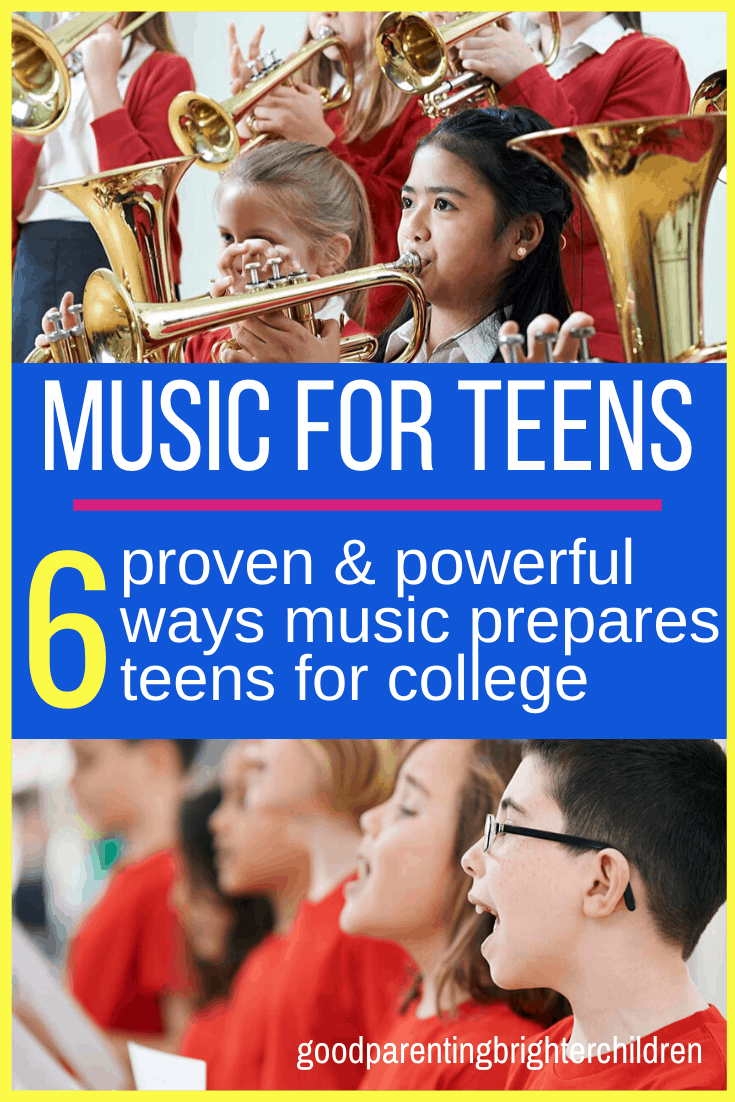
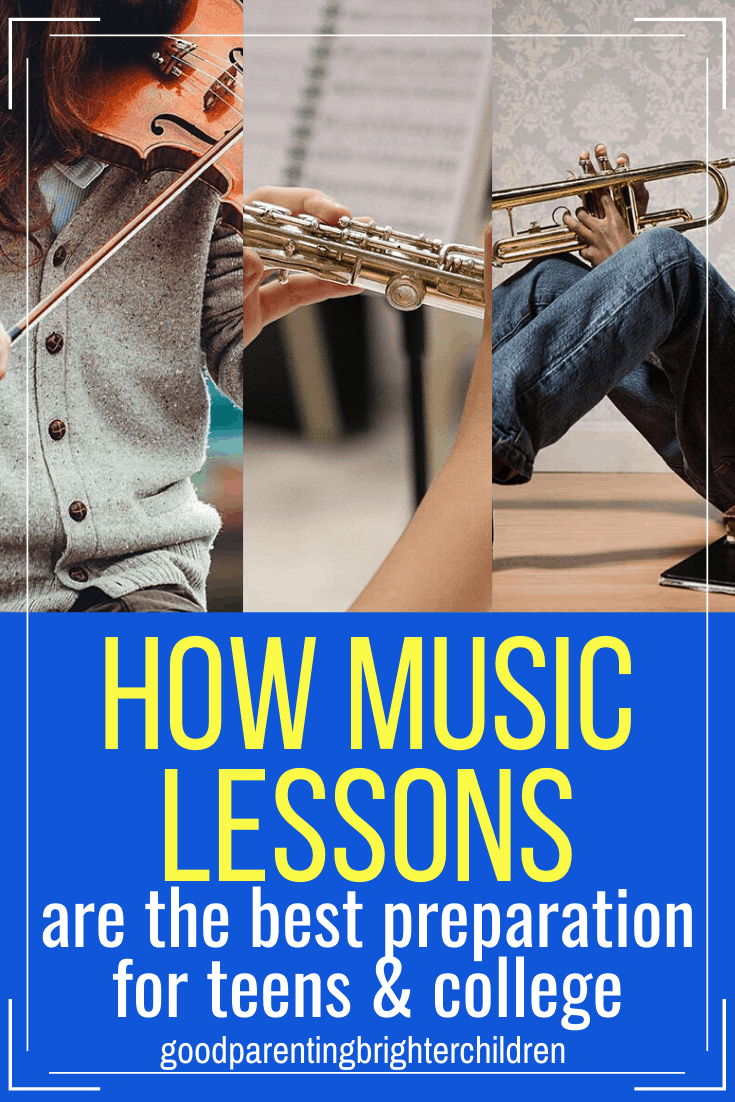


Yes! Yes! and Yes! Not only do I see this with my own child, but with all the other students I encounter when volunteering at different band events. All these teenage musicians are so talented in their instruments but equally as talented in their academics. They’re driven and won’t settle for anything less than the best from themselves in all areas. If anything, I would say they sometimes worry too much and put a ton of extra pressure on themselves to achieve at the highest level. It’s not the worst quality to have by any means but one that requires some communication between child and parents to make sure they’re in a healthy set of mind. Love this article, Sharlene!
Totally agree with everything you’ve said–excellent points! Like you, I saw this with my own kids, too. Their involvement in school music programs (band, orchestra & drumline) definitely helped them socially and academically. And now there is research to prove it as well. As you said–the drive to do their best seems to be part of the whole experience. My sons did extremely well in college (just like Zach)–and I give credit to the music! Thanks for sharing!